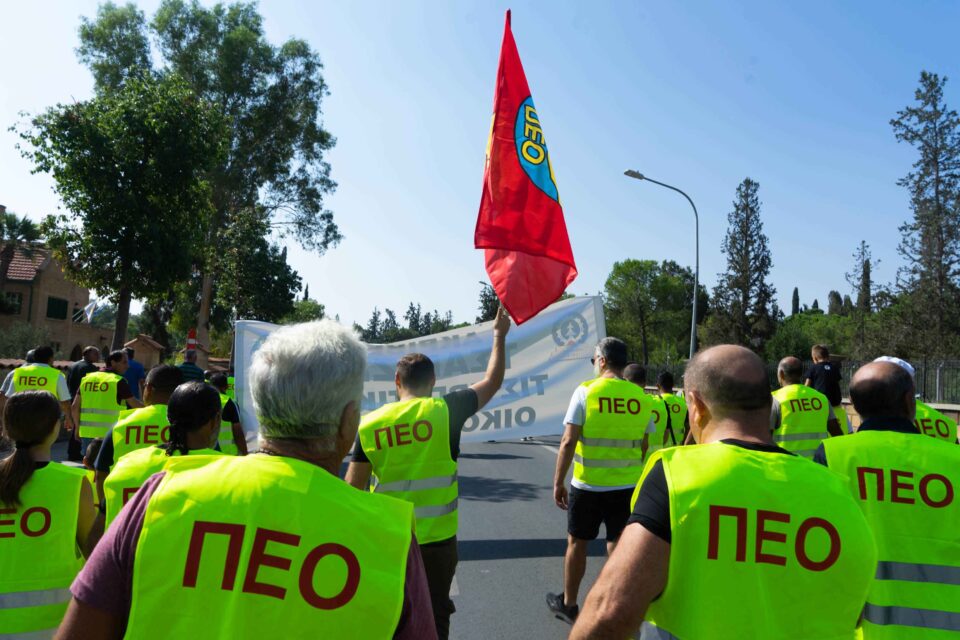The next meeting on the cost of cost-of-living allowance (CoLA) is expected to mark the signing of a final agreement following months of negotiations between unions, employers and the government, Labour Minister Yiannis Panayiotou said on Saturday.
Speaking on CyBC radio, Panayiotou confirmed that talks were now in their “final phase”, with what he described as “conditions in place for a permanent and positive outcome”.
“We are at the final stage of a months-long process to reach a permanent agreement after 15 years of uncertainty and transition,” he said.
Panayiotou said that in the coming days, provided the convergences reached at Friday’s meeting is used, it would be possible to conclude a lasting deal.
“Our goal is for the next meeting to be the day of signing the permanent agreement,” he said.
He added that the government’s objective was to secure a fair deal, protecting workers from rising living costs.
Asked whether the next meeting would serve as a final deadline, he replied: “I believe I was very clear. Convergences exist, and the goal is an agreement for everyone.”
The minister’s statement followed Friday’s six-hour meeting at the labour ministry.
Employers and unions described the discussions as “productive”, saying that significant convergence had been achieved on several key points.
From the employers’ side, Michalis Antoniou, director general of the employers and industrialists federation (OEV), acknowledged progress but said certain issues were still unresolved.
“There were mutual approaches. The convergence was not one-sided, but there are still points that must align; otherwise, there will be no agreement,” Antoniou said.
“It was clear from the beginning that unless all necessary parameters are met, no agreement will hold.”
OEV and the Cyprus Chamber of Commerce and Industry (Keve) will meet on Tuesday to update their members and renew their mandate for continued talks.
“On Tuesday, we will discuss in detail where we have moved, where we have convergence, and which issues remain pending. We have strong leadership and representative bodies covering around 80 per cent of the country’s GDP,” he said.
Trade unions, meanwhile, expressed frustration at what they described as external interference in the process. Sek general secretary Andreas Matsas said an “invisible hand” continued to influence negotiations, including during Friday’s six-hour session.
“After the meeting, all human emotions were expressed, anger, sadness, frustration and concern, for a process that seems to end without being completed,” Matsas said.
“However, we have become more persistent and determined to achieve our goal.”
He stressed that the unions’ demand for a fair CoLA adjustment was “directly linked to the cost of living and wages”, noting that while disagreements persisted, progress had been made.
“Confirmatory steps were showing that the required convergence can be achieved. It is disappointing that different approaches still exist. After six hours of discussion, we could have reached at least a preliminary agreement. Nevertheless, we believe that, one way or another, there will be an agreement, and we are positive about the new meeting next Friday.”
Peo union leader Sotiroula Charalambous said discussions were “in-depth” but that “important divergences” prevented even a preliminary deal. She added that unions were awaiting the next steps and would soon convene to assess their position.
All trade unions are expected to hold a joint meeting next week to brief their members and evaluate developments, describing the coming days as “critical” for the outcome of the negotiations.
The CoLA framework, a system adjusting wages in line with inflation, has been under review for years, with unions pushing for full restoration following its suspension during the financial crisis and employers seeking a more limited formula.
Panayiotou has previously said the government’s aim is to provide CoLA for all on a sliding scale.






Click here to change your cookie preferences